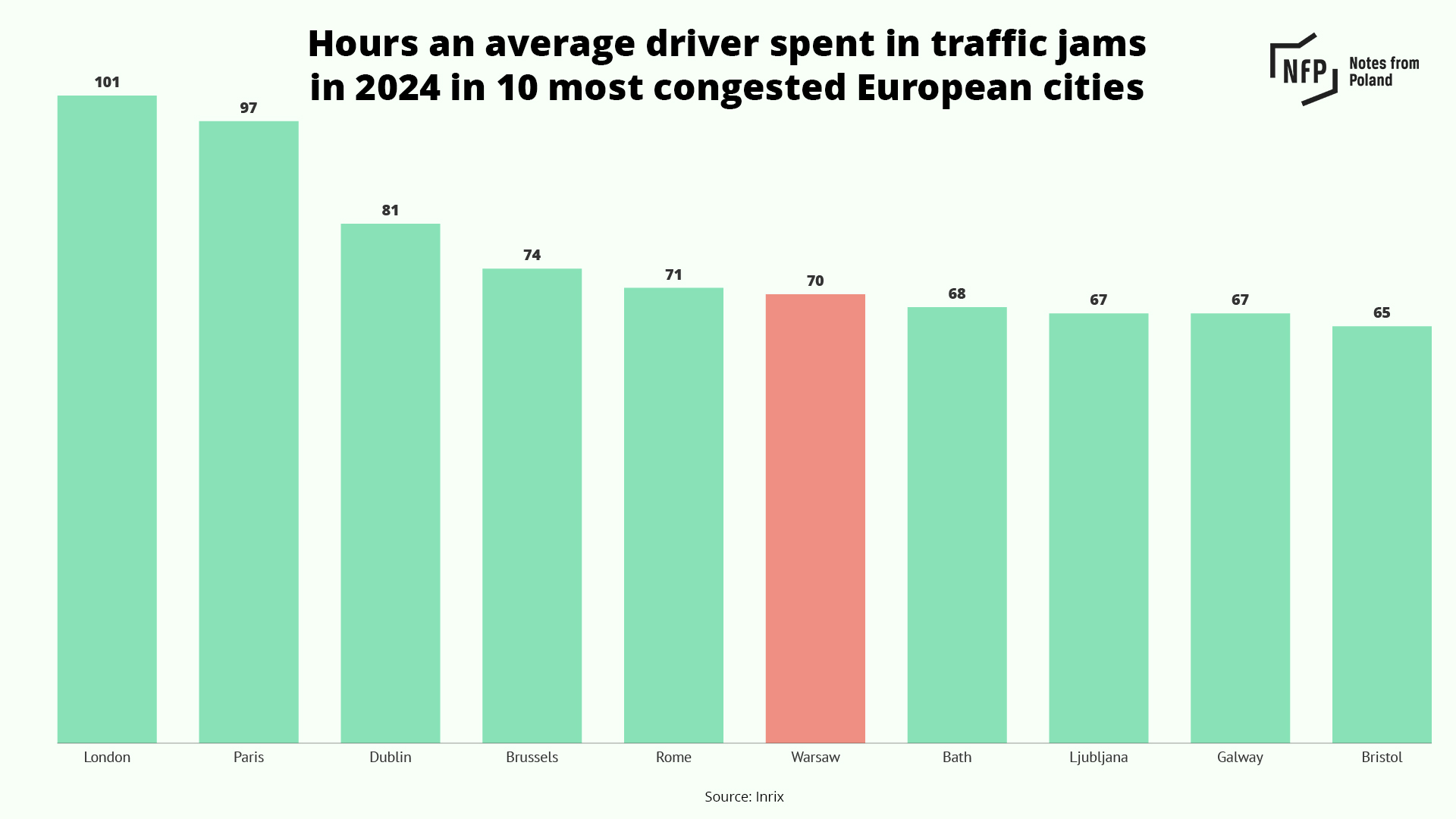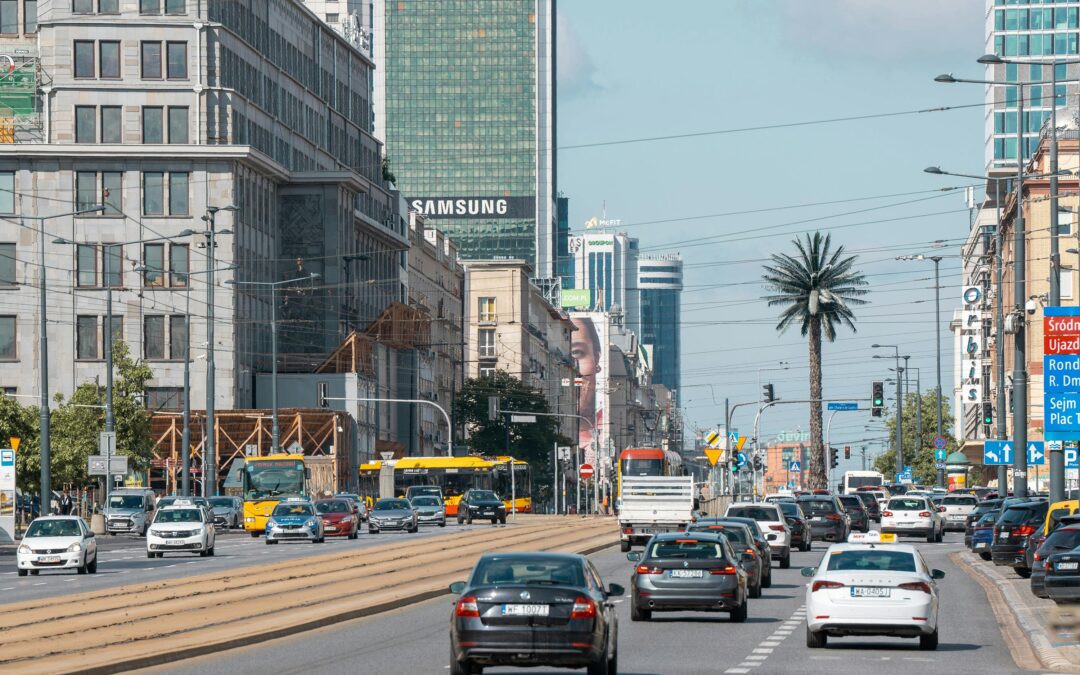Keep our news free from ads and paywalls by making a donation to support our work!

Notes from Poland is run by a small editorial team and is published by an independent, non-profit foundation that is funded through donations from our readers. We cannot do what we do without your support.
A typical driver in Warsaw spent 70 hours stuck in traffic in 2024, making the Polish capital Europe’s sixth most congested city and the 20th in the world, according to a new report.
The study, by US transport analytics firm Inrix, also noted a sharp increase in congestion in Warsaw in the past two years, with motorists facing 15% more delays last year than in 2023 and 20% more than in 2022. Warsaw’s worsening traffic saw it rise by eight positions in the global congestion ranking.
Inrix found the world’s most congested city to be Istanbul, where drivers spent an average of 105 hours in traffic last year. The most congested in Europe were London (101 hours), Paris (97 hours) and Dublin (81 hours).

Outside Warsaw, the worst traffic in Poland was found in Poznań (57 hours), Wrocław (56 hours), Kraków (53 hours) and Gdańsk (52 hours). Other Polish cities in the rankings included Katowice (46 hours) and Łódź (43 hours).
The 2024 Inrix report analysed traffic in over 900 cities across 37 countries, using mobile and vehicle data to compile its findings.
To calculate the average time a driver spends in traffic, the report’s authors used observed travel times along the most common commuting routes, using actual trip data to reflect typical commuter experiences.
Three Polish cities have the worst traffic in the world among places with a population below 800,000, finds a new ranking.
In Wrocław, it takes an average of 24 mins 30 seconds to travel 10km in the city centre, followed by Łódź (22:20) and Kraków (21:40) https://t.co/w6lydrkPSf
— Notes from Poland 🇵🇱 (@notesfrompoland) February 16, 2023
Another annual traffic index compiled by TomTom, a leading producer of navigation devices, in 2022 found that three Polish cities – Wrocław, Łódź and Kraków – have the most congested streets in the world among municipalities with a population below 800,000.
Besides high traffic volumes, Polish roads are among the EU’s most dangerous, with a high rate of pedestrian and road fatalities. The country, however, has made significant improvements in recent years following the introduction of tighter laws, including relating to drink driving.
Poland’s two largest cities, Warsaw and Kraków, have also in recent years moved to introduce “clean transport zones” in their centres, where older, more polluting cars are banned, Kraków’s plans have, however, been delayed after a court ruled they were not properly formulated.
From 1 July, older cars will be banned from the centre of Warsaw in what will be Poland's first "clean transport zone".
The city has launched a website allowing drivers to check if their car is among those affected https://t.co/AhyMdK8Dci
— Notes from Poland 🇵🇱 (@notesfrompoland) June 19, 2024

Notes from Poland is run by a small editorial team and published by an independent, non-profit foundation that is funded through donations from our readers. We cannot do what we do without your support.
Main image credit: Jakub Zerdzicki / Pexel

Alicja Ptak is deputy editor-in-chief of Notes from Poland and a multimedia journalist. She has written for Clean Energy Wire and The Times, and she hosts her own podcast, The Warsaw Wire, on Poland’s economy and energy sector. She previously worked for Reuters.



















